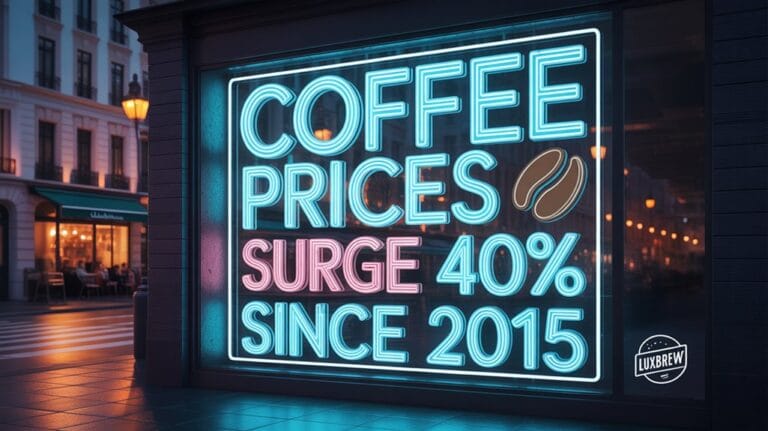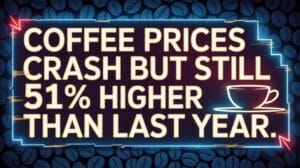But hidden beneath this growth is market consolidation. Over 4.6% of businesses closed annually in the same period, pushing survivors to adapt as coffee prices climb. Import costs hit record highs in 2024, with suppliers like France, Luxembourg’s top partner, charging premium rates. Poland offered cheaper beans, but global pressures kept prices rising.
Luxembourg’s coffee drinkers aren’t escaping the squeeze. Retail costs hit historic highs in early 2025, with consumer prices for coffee up nearly 40% since 2015. According to EUROSTAT, the country’s HICP coffee index surged to 146.40 points by June 2025, underscoring sustained inflationary pressures. Neighbors like Latvia and Lithuania face similar spikes, reflecting global trends. The role of coffee roasters in transforming raw beans significantly impacts the final product’s quality.
Luxembourg’s coffee prices hit historic 2025 peaks—up 40% since 2015—as neighbors Latvia and Lithuania grapple with similar global-market-driven spikes.
Even as wallets tighten, cafes thrive by mixing coffee with experiences — think artisanal brews or cozy atmospheres. But this boom could waver. Forecasts hint at a downturn for pubs and coffee shops in the next five years, likely due to stiff competition and shifting tastes.
Behind the scenes, supply chains face strain. Import prices skyrocketed in 2023, pinching profit margins. Roasters and cafes absorbed some costs, but consumers still pay more.
Though Europe holds a significant portion of the global coffee market, Luxembourg’s tiny size makes it nimble. Its role in the Benelux trade network helps it source beans, but reliance on imports leaves it vulnerable.
The market’s split: while big players consolidate, smaller cafes innovate to survive. Bars blend coffee with alcohol, targeting evening crowds. Coffee shops focus on premium blends or unique flavors.
But rising costs test their limits. Some locals now brew at home, though cafe culture stays strong. Luxembourg’s mix of high incomes and tight-knit communities fuels this resilience — for now.
As Europe’s coffee storms rage, this tiny nation’s caffeine conquest hinges on balancing price pressures with the allure of the perfect cup.





